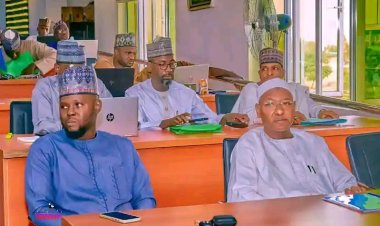Chief of Army Staff Urges Citizens to Play Active Role in Enhancing National Security
The Chief of Army Staff (COAS), Lt. General Taoreed Abiodun Lagbaja, emphasized the crucial role of citizen participation in maintaining national security during the First Strategic Personality Lecture held at the University of Ibadan's Institute of Peace and Strategic Studies (IPSS).
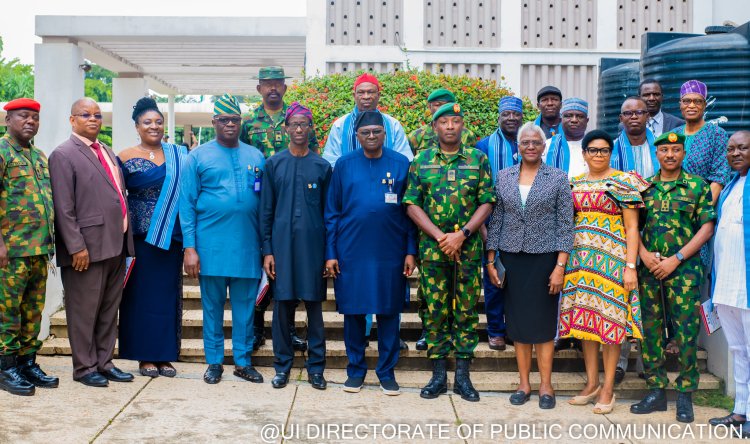
The Chief of Army Staff (COAS), Lt. General Taoreed Abiodun Lagbaja, emphasized the crucial role of citizen participation in maintaining national security during the First Strategic Personality Lecture held at the University of Ibadan's Institute of Peace and Strategic Studies (IPSS). The lecture, delivered on his behalf by the General Officer Commanding 2 Division, Major General Obinna G. Onubogu, addressed the topic "Combating an Adversary Without Boundaries: The Need to Implement a Whole-of-Society-Approach to Nigeria's National Security."
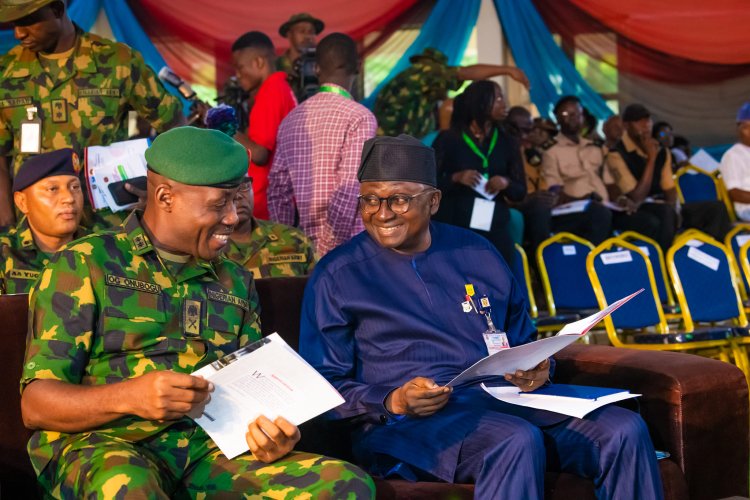
General Lagbaja highlighted the numerous security challenges confronting Nigeria, including insurgency, separatist agitations, terrorism, kidnapping, herders-farmers conflicts, transnational crime, and cyber threats. He noted that despite various military operations and efforts, achieving a stable security environment remains elusive. He stressed that security agencies alone cannot handle these multifaceted threats and called for a collaborative approach involving all sectors of society.
The COAS outlined several recommendations for enhancing national security, including heightened security awareness, respect for the rule of law, stronger local government involvement, and the integration of technology. He urged stakeholders to work together, ensuring that efforts are aligned with national interests and that communication and trust are strengthened across sectors. General Lagbaja underscored that a whole-of-society approach is key to ensuring a unified response to security challenges.
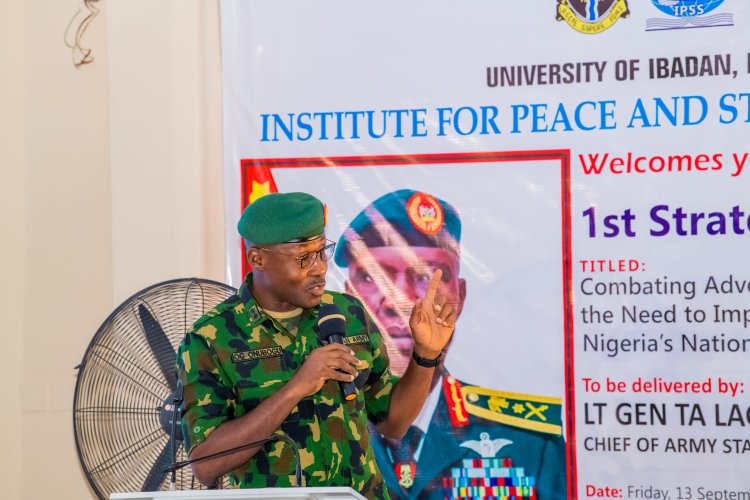
The Vice-Chancellor of the University of Ibadan, Professor Kayode O. Adebowale, mni, fspsp, FAS, expressed the university's commitment to supporting the Nigerian Army's strategy. He noted that the IPSS will continue to engage in conflict management, grassroots peacebuilding, and capacity development through research and training to promote peaceful coexistence in Nigeria.
The event's chairman, Lt. General Lamidi O. Adeosun (Rtd), a former Commander of the Multinational Joint Task Force, commended the Nigerian Army's efforts in securing the nation. He called for continued respect and support for the military, stressing that soldiers play an indispensable role in preserving Nigeria’s unity. General Adeosun also emphasized the need for stronger civilian-military relations, pointing out that security threats affect all sectors of society without distinction.
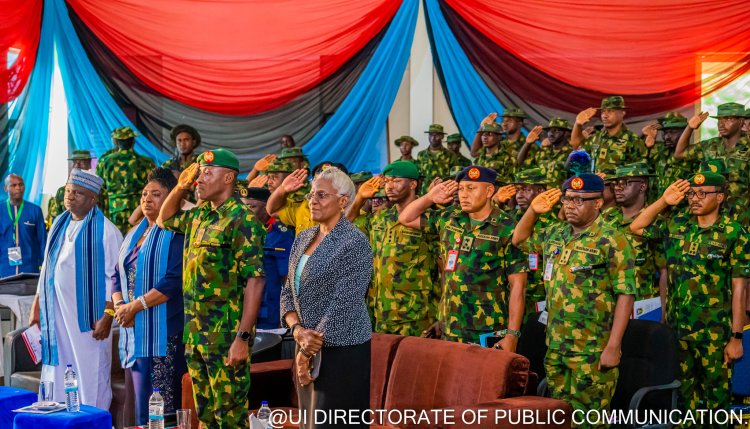
Professor Ruth Adio-Moses, Director of the IPSS and Head of the Department of Peace, Security, and Humanitarian Studies, noted that the lecture series serves as a vital platform for addressing national issues related to defense, security, and sustainable peace. She reinforced that national security is a collective responsibility, involving citizens, communities, and all sectors working together to achieve a safer Nigeria.
The lecture marks the beginning of a series aimed at fostering public discourse on key national security and development issues, with the IPSS playing an active role in shaping strategies for peace and conflict resolution in the country.

 UBA CHIDINMA
UBA CHIDINMA 